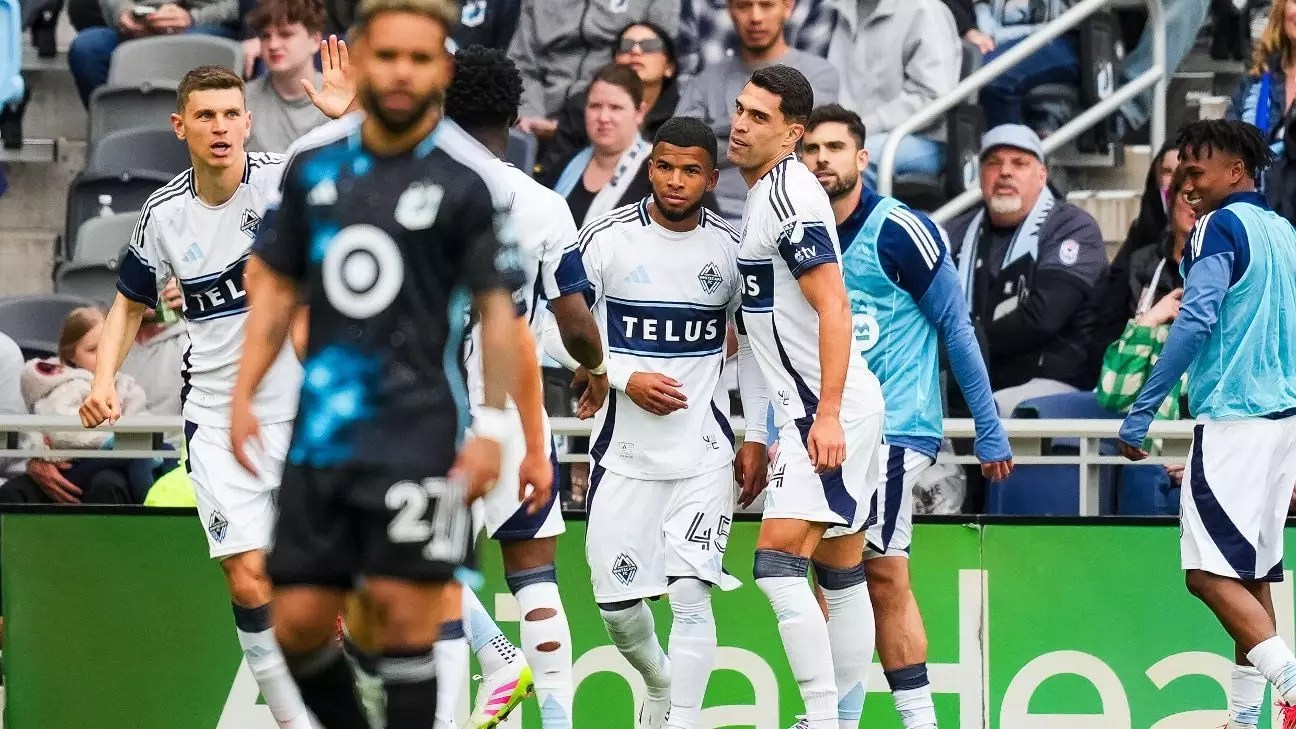Recently, Major League Soccer (MLS) faced another serious issue concerning its Non-Discrimination Policy during a match between Minnesota United FC and the Vancouver Whitecaps. In the dying minutes of the match, tensions escalated, highlighting a concerning facet of the sport that continues to plague the league. The incident unfolded around the 95th minute as players engaged in what appeared to be a heated verbal exchange. This was no longer just a simple confrontation over a contentious call; it was a potential violation of the league’s essential commitment to creating an inclusive and respectful environment.
The altercation drew the attention of the match officials, particularly referee Drew Fischer, who took it upon himself to invoke the league’s protocols. However, despite the apparent seriousness of the situation, Fischer opted not to take any disciplinary action, suggesting that he could not verify the specific words spoken during the exchange. This lack of intervention raises questions about the effectiveness of the policies in place and whether game-day officials are adequately equipped to handle such incidents effectively.
The Backlash of Inaction
After the referee’s decision, emotions ran high, culminating in further altercations even after the final whistle. Reports indicated that Minnesota’s Joseph Rosales was involved in an unsanctioned shove directed at a Vancouver player as players made their way down the tunnel. This post-match behavior underscores the volatile atmosphere created when discriminatory language is suspected but not addressed in a timely or appropriate manner. It also highlights the wrestling match between emotions and sportsmanship that persists among top-flight athletes.
The response from both MLS and Minnesota United was swift but still forms part of a troubling narrative. The club’s statement firmly condemned harassment and discrimination, affirming their commitment to a respectful playing environment. However, platitudes alone do not suffice; action must follow words to demonstrate that the league genuinely prioritizes this issue.
A Pattern Emerging in MLS
The incident isn’t isolated. MLS has been grappling with similar instances of discriminatory behavior over the years. High-profile suspensions, like those of Philadelphia Union’s Kai Wagner and New York Red Bulls’ Dante Vanzeir, demonstrate a pattern of inappropriate language that has historically crept into the game. These suspensions reveal a persistent problem within the league, showcasing that the issue does not merely linger, but rather festers in some corners of soccer culture.
The league’s ability to confront and eliminate discriminatory behavior is put to the test with each new incident. It begs the question: how effective are the measures in place to train players and officials about appropriate conduct? While the recent establishment of training programs, in partnership with Black Players For Change, indicates that MLS is striving for improvement, the implementation of these initiatives is crucial. Awareness must translate into action for these programs to catalyze a meaningful culture shift.
Creating a Culture of Accountability
As the league embarks on its review of the Minnesota incident, it has an essential opportunity to set a standard for how it handles such allegations moving forward. It is imperative that MLS embodies a culture of accountability—one where players understand the consequences of their words and actions. This moment calls for collaboration between players, teams, and league officials to ensure that any violations are taken seriously, with repercussions that resonate throughout the sport.
Furthermore, accountability should not fall solely on the shoulders of the players. It is equally vital for coaches, administrators, and support staff to galvanize against discriminatory environments. To truly effect change, everyone involved in the organization must actively participate in cultivating respect and inclusion.
The Road Ahead for MLS
The coming weeks will reveal how MLS chooses to navigate this incident. Will it merely issue statements of condemnation, or will it take definitive steps toward rectifying the challenges associated with discrimination? The potential for transformation exists, but it requires the collective will to change engraved norms. By taking proactive measures, recognizing the patterns of past missteps, and enforcing stringent accountability throughout the league, MLS can forge a path forward that truly champions the values of sportsmanship and inclusivity. Only then can the league emerge not just as a sporting entity, but as a beacon of positive change.


Leave a Reply